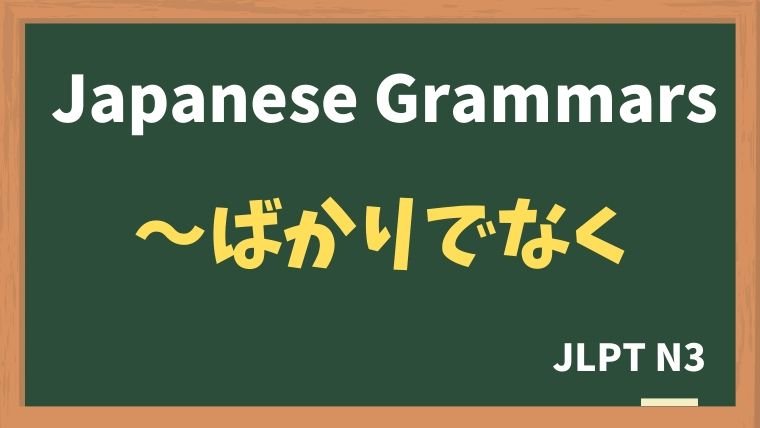
Explanation:〜ばかりでなく・・・も
fa-check-circleMeaning
"〜だけでなく・・・も"
"not only A, but also B"
Used to indicate that something is not only true but that there is also another element or aspect to consider. It introduces additional information or elements to a statement, emphasizing that what follows is also significant or relevant.
fa-check-circleForm
V(plain form) + ばかりでなく
イA + ばかりでなく
ナA な/である + ばかりでなく
N + ばかりでなく
fa-check-circlePoints
- Not Just, But Also: "〜ばかりでなく" is used to show that something is not the only factor, but there is also something else to consider. It emphasizes that multiple aspects or conditions are true.
- Used in Both Positive and Negative Contexts: This expression can be used to add positive or negative elements to a statement.
fa-check-circleJLPT Level
N3
Sample sentenes
トムさんは日本語ばかりでなく中国語も話せる。
Tom can speak not only Japanese but also Chinese.
このレストランは安いばかりでなく、サービスも良い。
This restaurant is not only affordable but also offers excellent service.
ジェームスさんは案内してくれたばかりでなく、食事もご馳走してくれました。
James not only guided us but also treated us to a meal.
台風が近づいてきているので、雨ばかりでなく、風も強い。
A typhoon is approaching, so not only is it raining, it is also windy.
マイケルさんは昨日ばかりでなく、今日も宿題をやってこなかった。
Michael not only didn't do his homework yesterday but also hasn't done it today.
彼は勉強ばかりでなく、スポーツも得意だ。
He is not only good at studying but also skilled in sports.
Vocabulary
| Japanese |
English | |
| ご馳走する | ごちそうする | to treat |
| 近づく | ちかづく | to approach |






